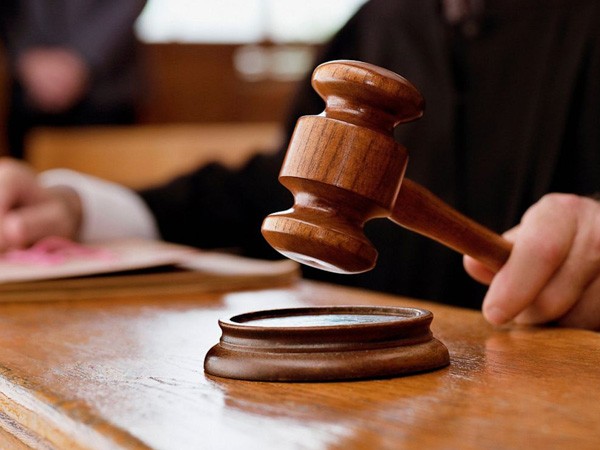Swiss trial acquits man who admitted abducting Belarus politicians
Oct 02, 2023
Geneva [Switzerland], October 2: YuryGaravsky had confessed to being part of a hit squad in Belarus that forcibly disappeared prominent members of the country's opposition. But that wasn't enough for his conviction.
On trial in Switzerland last week, the former special forces soldier gave a detailed account of the abduction and murder of three men in 1999, although he denied being the executioner.
Sitting just metres behind him in court as he spoke were two of the victims' daughters, who have spent 24 years seeking formal recognition of what happened to their fathers.
But on Thursday, YuryGaravsky was acquitted. In a surprise ruling, the judge said the Belarusian's various statements were "entangled in contradictions".
The judge recognised the complicity of the Belarusian authorities in the disappearances but he was not persuaded "beyond reasonable doubt" of the ex-soldier's own involvement.
Valeria Krasovskaya, whose father Anatoly is one of the missing, told the BBC the verdict was "very absurd" and a contradiction of common sense.
The case began after the former soldier contacted journalists in 2019 claiming he'd been involved in the disappearance of an ex-interior minister of Belarus, YuryZakharenko, opposition politician Viktor Gonchar and Anatoly Krasovsky, a prominent businessman.
At the time, YuryGaravsky was seeking political asylum in Switzerland and struggling to get migration officers to believe his story.
He may also have hoped publicity would bring some protection: he'd fled Belarus a year earlier after a car accident in Minsk left him in a coma for two weeks. He still walks with a stick and thinks the crash was an attempt to kill him
To those most closely connected to the case, Mr Garavsky's tale always rang true. So the daughters of two of the missing petitioned Swiss prosecutors to open a criminal case under the UN convention on enforced disappearance.
The former special forces soldier was detained, questioned and then charged.
Valeria Krasovskaya still remembers waking in the middle of the night 24 years ago to find her mother calling police, hospitals and the city morgue because her husband hadn't come home.
Anatoly had been to a bathhouse in Minsk with Viktor Gonchar, a well-known opponent of Alexander Lukashenko, who was then tightening his hold on power.
The next morning, Valeria's mother found blood and broken glass at the scene. Her husband and his friend had vanished.
Anatoly Krasovsky's body has never been found.
"You don't know, is he alive or dead? And if he's dead then what happened and where is his body?," Valeria describes the unique pain for families of an enforced disappearance.
"You can't close the chapter, so you learn to live with it. But it's very difficult."
Valeria was in court in Switzerland to hear YuryGaravsky recount how his special forces unit had been ordered to detain her father together with Viktor Gonchar and drive them out of town.
The former soldier insisted multiple times that he didn't pull the trigger or even hand over the gun from the car, as he had said previously. Facing time in prison, he seemed to be minimising his role.
But he did admit to direct involvement in a violent abduction, including smashing Viktor Gonchar's face on the ground. He also described how the two men were shot in the back on the edge of Minsk.
Mr Garavsky said he helped strip the bodies and bury them in a pit that had been dug in advance. Their clothes were then burned.
His manner was almost brutally matter of fact. Valeria listened carefully, jotting down every detail, a friend's arm round her back for comfort.
"Even though I lead perfectly normal and happy life, I am still always confronted by the disappearance of my father," she had told me, ahead of the hearing.
"Every time I think about him I feel very sad," she said. "I guess that's normal. But I do want to feel lighter."
For Elena Zakharenka, it wasn't the first time she'd heard the shocking testimony.
In 2020, the journalists Mr Garavsky first approached with his story had arranged for the two to meet. He answered all the questions that had tormented Elena about her father's disappearance.
She told me she had no reason not to believe him. She described Mr Garavsky as almost broken, apparently weighed down by the knowledge of his crime.
In the days before YuryZakharenko vanished in May 1999, his family had become so worried for his safety they would phone every ten minutes or so to check on his whereabouts.
The former minister had maintained significant support among the security services after his dismissal and was seen as a threat to Alexander Lukashenko.
"He was calm, he said to put the dinner on, he was almost home," Elena recalls her last conversation with her father.
For a long time, the family held on to the hope that Yury had been thrown in a KGB dungeon and was still alive.
That slipped away, but never knowing how her father died has intensified Elena's suffering.
"Did they do it straight away? Or did they torture him for a long time first?
"It was very important for me to know what state my father was in when he died. to ease my soul just a little."
In court, Mr Garavsky repeated what he'd told her in 2020: that her father had been abducted in handcuffs, then shot twice in the back. It was over quickly.
When the judge asked the Belarusian why he hadn't refused to follow orders, Mr Garavsky said he would have joined the dead dissidents in the ditch.
He insisted that the actual gunman was the head of the notorious SOBR special forces unit in Belarus, Dmitry Pavlichenko. Detained briefly at the time, the commander was released from custody on President Alexander Lukashenko's personal orders.
In 2003, a Council of Europe investigation also linked Pavlichenko to the enforced disappearances and concluded that there had been a cover-up 'at the highest level of state'.
"It was Lukashenko behind it," Christos Pourgourides, the original rapporteur, told the BBC by phone from Cyprus.
"In countries like that, killing of this nature never takes place without the knowledge of the first man."
The Belarusian authorities have yet to reply to a BBC request for comment.
The judge didn't disagree that the three men were abducted, or that Belarusian authorities were involved in their disappearance.
But he couldn't accept YuryGaravsky as a reliable witness.
His annoyance was clear in court, during a two-day trial that was frequently testy.
Burly and 2m (6ft 6in) tall, the Belarusian had arrived with police protection, wearing dark glasses and with his hood pulled down low over his face. He mumbled his answers, despite repeated requests to speak up, and was impatient with many of the questions.
Part of the problem seemed to be the almost amateur official translation in court, especially when it came to Mr Garavsky's role in the special forces. He was also surly, as if he couldn't be bothered to answer questions he thought irrelevant.
YuryGaravsky did reveal that Viktor Gonchar was missing a toe, a little-known detail he says he spotted when burying the body.
But the judge focused on his previous claim that the killings had taken place under a full moon, which wasn't true. Mr Garavsky now suggested that the car headlights had lit up the crime scene.
There were other contradictions and each time, he blamed the discrepancies on "bad translation." The judge was openly unimpressed.
Acquitting the accused, a week later, he suggested Mr Garavsky might have heard of the killings from colleagues or in the media and simply repeated their stories.
Elena Zakharenka told the BBC she was "very, very disappointed" with the verdict.
She had been looking to the Swiss legal system to record what her family has long been sure of: that her father was killed because of his politics.
The families expect to appeal the verdict to a higher court, a process that will take months if not years.
"We did what we could," Elena Zakharenka said. "But YuryGaravsky altered his testimony in court."
Source: Fijian Broadcasting Corporation








